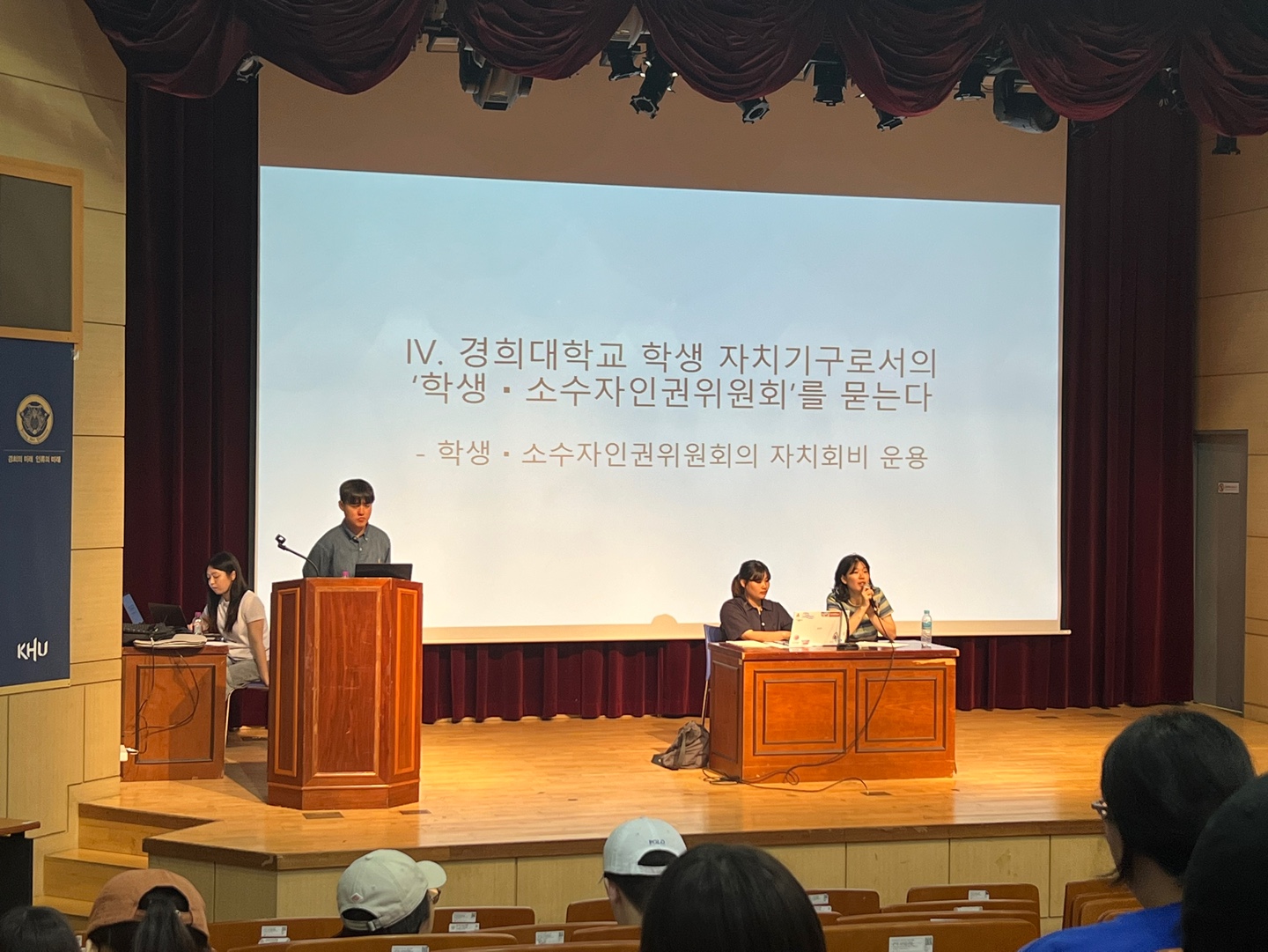[Campus] Paying More, Knowing Less: International Students Question Tuition Hikes
International students at Kyung Hee University (KHU) struggle to access clear information about tuition fees. This challenge has become particularly evident this year, as the University takes an active approach to tuition matters for Korean students. The situation demonstrates KHU’s need to better ensure international students’ access to information.
The universities want the international students to pay more
Photo: The Kukmin Daily (kmib.co.kr)
Tuition Hikes Without Notice
Tuition fees for international students increased by 5% for the 2025 academic year, marking the third consecutive rise. However, many students were unaware of this change until they viewed their tuition invoices.
“I never received any official notification about the tuition fee increase and only learned about it later,” said Li Anastasiia, a Russian student from the Dept. of Korean Language. Similarly, Ei Mon Phyu, a Myanmar student from the Dept. of Tourism Sciences, added, “I only discovered the tuition fee increase when I printed my tuition invoice from Info 21.”
The ignorance is due to the lack of efforts made to inform international students. The Office of Planning and Coordination (OPC) did not provide detailed explanations or conduct promotional efforts. Furthermore, neither the General Student Association (GSA) nor the General Affairs of International Students (GAIS) made any formal announcements.
This sharply contrasts with how the University handled the tuition fees for Korean students, which have increased for the first time in 16 years. Before making this decision, the OPC had enough communication—they held two times of face-to-face tuition explanation sessions, a press conference with KHU media outlets, and involved the GSAs from both campuses in the Tuition Deliberation Committee (TDC).
Not a Conversation, But a Broadcast
The OPC stated that the tuition fee decisions were made with sufficient communication to students. They explained, “We discussed with the whole related stakeholders regarding the tuition fees rise, including the representatives from GSA, GAIS, the Office of International Affairs, and the OPC. The final decision was made at the TDC meeting based on these discussions.”
Despite these procedures, international students still face significant communication barriers. Tsui Man Ki, a Hong Kong student from the Dept. of Industrial Design, expressed her frustration: “I have no idea how the tuition fees for international students are determined.” She added, “Most tuition fee information is available only in Korean—even on Instagram. I do not know how the fees are calculated or where the money goes.” Her remarks highlight the lack of accessible information for international students.
Li Anastasiia also expressed her concern, “I did not know that our campus had a GAIS. Especially at the Global campus, there is no such organization. I think it would be good to establish a representative body so that international students can gather and discuss the tuition fee matters.”
Lack of Student Governance Support
A source of the recurring problem stems from the student body’s lack of perception of the issue. The 2024 Seoul Campus GSA, KHUBE, clarified their stance: “Matters related to international students are handled by GAIS, and we have a limited role in this issue. We will cooperate if they request our support.”
The 2024 Global Campus GSA, Running, showed a similar response. Initially, Running made an election pledge to establish a GAIS at the Global Campus. However, they dropped it for two reasons: a student self-governance body creating another such body being controversial, and insufficient demand from international students to establish such an organization.
Instead, they revised the Student Association Constitution to allow for the establishment of an International Student Committee with the role of “protecting the rights and improving the welfare of international students at the Global Campus.” This change indicates that the Global Campus now has a framework for gathering international students to hear their voices and needs.
We Paid, with No Idea Where It Goes
International students’ demands also reflect a call for greater transparency. The OPC explained that the fees go toward student welfare. They stated, “Since 2023, all international students have been enrolled in health insurance. We have also hired advisors exclusively for international students and increased the number of dormitory slots available for them.”
However, international students seemed unaware of these benefits. Ei Mon Phyu said, “I am not sure about those benefits since I have not used them.” Li Anastasiia remarked, “I am a junior, but I have not really experienced these benefits during my past three years. While medical support is a great policy in theory, I have not been satisfied with it.”
Some students suggested more immediate needs. Tsui Man Ki said, “I do not think there are enough English classes. This semester, there was only one Global Citizenship class in English. There are many students in the English track, and most of them cannot register for the class. I want more English classes.”
International students’ tuition fees have been rising annually. As a result, they continue to demand greater transparency, wanting to understand both the reasons for these increases and how their fees are being utilized. To build trust and improve satisfaction, KHU must support its international student community and ensure their right to know and participate in policy implementation.
There are no registered comments.
- 1
I agree to the collection of personal information. [view]


